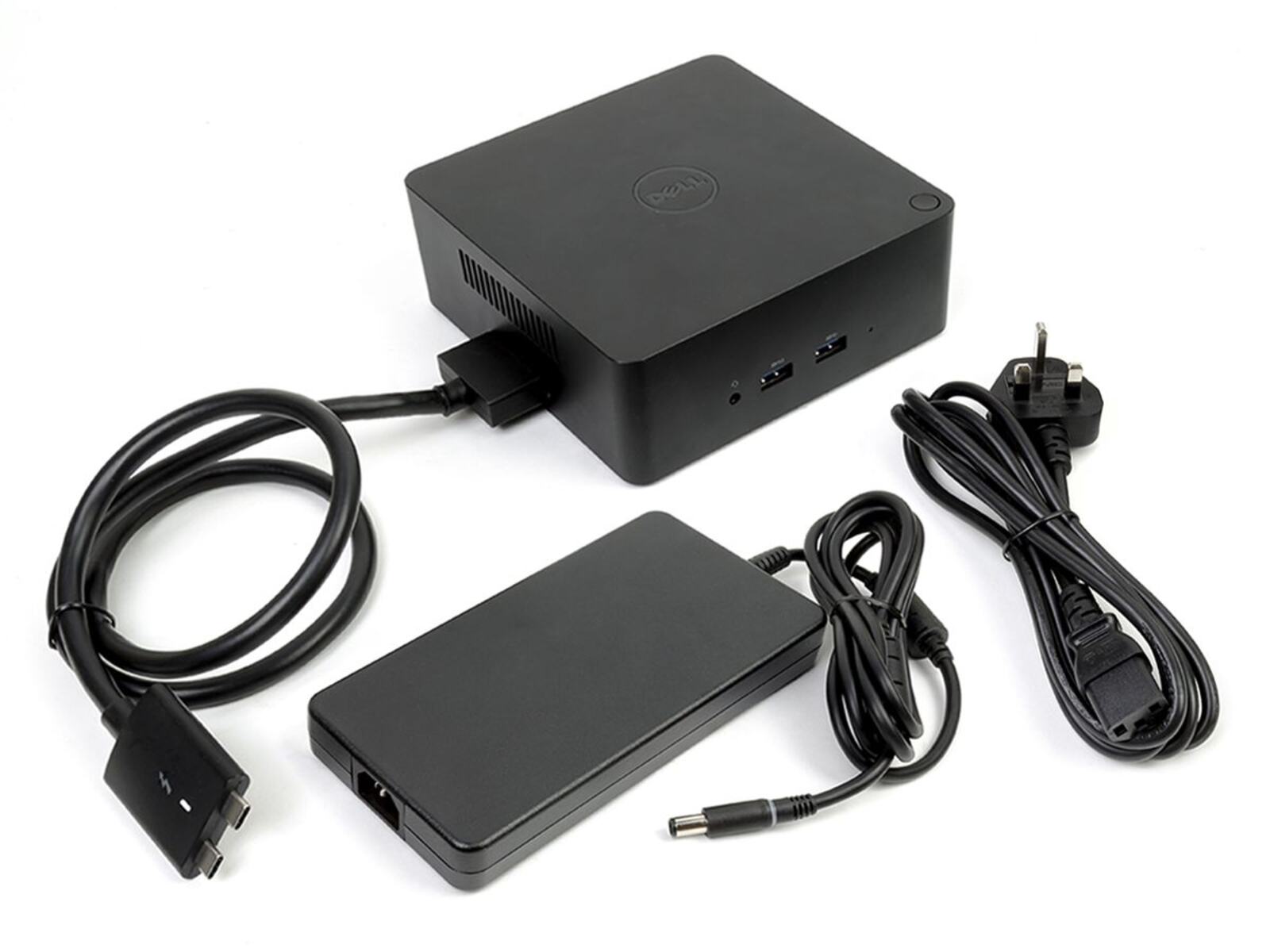Introduction
When it comes to technology, Dell has established itself as a prominent name in the industry, especially in the realm of laptops. With their sleek design, high-performance capabilities, and user-friendly features, Dell laptops have become a favorite choice among consumers worldwide. However, have you ever wondered where these innovative devices are made? In this article, we will explore the manufacturing locations of Dell laptops, uncovering the global supply chain that brings these devices into our hands.
Before delving into the specifics of Dell’s manufacturing facilities, it’s essential to understand the origins of this renowned brand. Founded in 1984 by Michael Dell in his University of Texas dorm room, Dell started as a small-scale operation, assembling computers from components purchased from various suppliers. However, the company’s commitment to quality, affordability, and customer-centric approach propelled its growth, leading to its prominent position in the tech industry today.
Dell’s success can be attributed in part to its global manufacturing strategy. The company has strategically established manufacturing facilities around the world to meet the demands of its diverse customer base. These facilities leverage efficient production processes and state-of-the-art technology to ensure the production of high-quality laptops that meet the brand’s rigorous standards.
One of Dell’s key manufacturing locations is the United States. Despite the increasing trend of outsourcing manufacturing to other countries, Dell continues to maintain a strong presence in the U.S. The company operates manufacturing facilities in Texas, North Carolina, and Tennessee, among other states. These facilities employ advanced technologies to produce a range of Dell products, including laptops, desktops, and servers.
Another prominent manufacturing location for Dell laptops is China. With its skilled workforce and robust infrastructure, China has become an integral part of Dell’s supply chain. The company has established manufacturing facilities in cities like Xiamen, Chengdu, and Suzhou, where Dell laptops undergo various stages of assembly, testing, and quality control.
In addition to the United States and China, Dell has manufacturing facilities in Malaysia, Brazil, Ireland, India, and other countries. These locations serve as hubs for assembling, packaging, and shipping Dell laptops to various regions across the globe. The strategic placement of these facilities allows Dell to streamline its supply chain, reduce shipping times, and cater to local market requirements.
The Origins of Dell
To truly understand Dell’s manufacturing prowess, it’s important to delve into the origins of this formidable brand. Dell Inc., initially named PC’s Limited, was founded by Michael Dell in 1984. What started as a small-scale operation in Michael’s dorm room at the University of Texas soon transformed into a multi-billion-dollar company with a global presence.
Michael Dell’s vision was simple yet revolutionary: to provide customers with customized computers directly, bypassing the traditional retail channel. By cutting out the middlemen, Dell aimed to offer customers better value for their money, faster delivery times, and superior customer service.
In the early days, Dell started assembling computers in an unconventional manner. Instead of manufacturing all the components in-house, Dell sourced parts from various suppliers, including processors, memory modules, and hard drives, to create a final product tailored to the customer’s specifications. By doing so, Dell could keep costs down and offer customers more affordable options.
Dell’s business model was groundbreaking at the time, disrupting the traditional retail model dominated by companies like IBM and Compaq. With the rising popularity of personal computers in the 1990s, Dell seized the opportunity to innovate and expand its operations. The company rapidly expanded its manufacturing facilities, investing in cutting-edge technologies and automated production lines to meet the increasing demand.
One of the key developments in Dell’s history was its foray into the online marketplace. In 1996, Dell launched its website, allowing customers to configure and order customized computers directly from the comfort of their homes. This direct-to-consumer approach revolutionized the industry, leading to greater efficiency, improved customer satisfaction, and increased market share for Dell.
Dell’s commitment to customer satisfaction extended beyond just the purchasing experience. The company placed significant emphasis on after-sales support and service. Dell introduced a comprehensive customer support system, offering technical assistance, warranty options, and on-site repairs. This dedication to addressing customer needs helped foster long-term relationships and build a loyal customer base.
Over the years, Dell expanded its product offerings beyond desktop computers, venturing into laptops, servers, storage devices, and peripherals. Today, Dell laptops are renowned for their reliability, performance, and sleek designs. The company continues to innovate by incorporating the latest technological advancements and collaborating with industry leaders to improve the overall user experience.
Dell’s Manufacturing Facilities
Dell, a global leader in the technology industry, operates manufacturing facilities across different countries to fulfill the production demands of its diverse product range. These facilities employ advanced technologies, streamlined processes, and highly skilled workers to ensure the efficient and timely manufacturing of Dell laptops.
One of the significant manufacturing locations for Dell is the United States. Despite the trend of outsourcing manufacturing to other countries, Dell maintains a strong manufacturing presence in the U.S. The company operates facilities in multiple states, including Texas, North Carolina, and Tennessee. These facilities utilize state-of-the-art equipment and automation to produce a wide range of Dell products, including laptops, desktop computers, and servers.
China is another important country in Dell’s manufacturing landscape. With a highly skilled workforce and robust infrastructure, China has become a crucial part of Dell’s global supply chain. The company has established manufacturing facilities in cities such as Xiamen, Chengdu, and Suzhou. These facilities handle various stages of the manufacturing process, from assembly to quality control, ensuring that Dell laptops meet the brand’s rigorous standards.
In addition to the United States and China, Dell has manufacturing facilities in Malaysia, Brazil, Ireland, India, and other countries. These facilities serve as regional hubs, catering to the specific needs of different markets. For example, Dell’s manufacturing facility in Malaysia focuses on producing laptops for markets in the Asia-Pacific region. Similarly, the facility in Brazil caters to the Latin American market.
Each manufacturing facility follows Dell’s stringent quality control practices to ensure that all laptops meet the highest standards. From the selection of components to the assembly and testing processes, every step is meticulously monitored to guarantee the reliability and performance of Dell laptops.
Furthermore, Dell places a strong emphasis on sustainability and environmental practices in its manufacturing operations. The company is committed to reducing its carbon footprint and minimizing waste generation. Dell strives to make its manufacturing processes as eco-friendly as possible, implementing energy-efficient technologies and recycling initiatives to contribute to a greener future.
With its global manufacturing footprint, Dell effectively manages its supply chain and reduces shipping times. This enables the company to swiftly deliver laptops to customers worldwide, meeting their demands efficiently. Moreover, the strategic geographic distribution of manufacturing facilities allows Dell to adapt to market fluctuations and optimize production capacity.
Overall, Dell’s manufacturing facilities play a vital role in maintaining the brand’s reputation for quality and innovation. By leveraging advanced technologies and an extensive global network, Dell ensures that its laptops are consistently reliable, high-performing, and meet the evolving needs of its discerning customers.
The United States
Dell, a global leader in the technology industry, maintains a strong manufacturing presence in the United States. Despite the prevalent trend of outsourcing manufacturing to other countries, Dell continues to operate facilities in various states across the country. These facilities are crucial for producing a wide range of Dell products, including laptops, desktop computers, and servers.
One of the key locations for Dell’s manufacturing operations in the United States is Texas. The company’s headquarters in Round Rock, Texas, is not only a hub for research and development but also houses a significant manufacturing facility. This state-of-the-art facility employs advanced technologies and automated production lines to ensure the efficient assembly and testing of Dell laptops. Texas plays a pivotal role in Dell’s supply chain, enabling the company to quickly meet the demands of its customers.
North Carolina is another state where Dell has a significant manufacturing presence. The facility in Winston-Salem, North Carolina focuses primarily on the production of Dell laptops. Highly skilled workers handle the various stages of the manufacturing process, from assembling the components to performing rigorous quality control checks. This facility combines human expertise with advanced automation to ensure the production of high-quality laptops that meet Dell’s stringent standards.
Tennessee is also home to one of Dell’s manufacturing facilities, located in Nashville. This facility contributes to the production of a range of Dell products, including laptops, desktops, and servers. Dell’s manufacturing operations in Tennessee are known for their efficiency and ability to handle large-scale production. The facility employs cutting-edge technologies and streamlined processes to meet the demands of Dell’s customers promptly.
Dell’s decision to maintain manufacturing operations in the United States aligns with its commitment to supporting local economies and job creation. The company recognizes the value of skilled American workers and the importance of contributing to the growth of communities. By keeping manufacturing facilities in the United States, Dell not only ensures the quality and reliability of its products but also plays a vital role in bolstering the country’s manufacturing sector.
Moreover, the manufacturing facilities in the United States enable Dell to offer customized and personalized configurations to its customers. With the ability to produce laptops quickly and efficiently within the country, Dell can meet the specific requirements of its customers, delivering tailored solutions that cater to their individual needs.
In summary, Dell’s manufacturing operations in the United States are integral to the company’s global supply chain. The facilities in Texas, North Carolina, Tennessee, and other states combine cutting-edge technologies, skilled workers, and efficient processes to ensure the production of high-quality Dell laptops. By maintaining a strong manufacturing presence in the United States, Dell demonstrates its commitment to delivering reliable products and supporting local economies.
China
When it comes to Dell’s global manufacturing operations, China holds a significant position. With its skilled workforce, robust infrastructure, and favorable business environment, China has become an integral part of Dell’s supply chain. The company has established multiple manufacturing facilities in various cities across the country, such as Xiamen, Chengdu, and Suzhou.
China’s manufacturing facilities play a crucial role in assembling and producing Dell laptops. These facilities house advanced production lines and utilize cutting-edge technologies to ensure the efficient and precise manufacturing of Dell’s products. Skilled workers oversee the entire production process, from component assembly to quality control checks, ensuring that the laptops meet Dell’s exacting standards.
One of Dell’s key manufacturing locations in China is Xiamen. The Xiamen facility handles various aspects of the laptop manufacturing process, including component assembly, integration, and final system testing. Highly skilled workers and stringent quality control measures ensure that every laptop leaving the facility meets Dell’s rigorous quality standards.
Another significant manufacturing site in China is Chengdu. This facility focuses on laptop assembly and testing. The facility in Chengdu is known for its modern infrastructure and adherence to Dell’s strict manufacturing protocols. Skilled technicians and automated systems work in tandem to ensure the production of high-quality laptops.
In addition to Xiamen and Chengdu, Dell has a manufacturing presence in Suzhou, a city known for its industrial and technological advancements. The Suzhou facility specializes in the assembly and testing of Dell laptops. This manufacturing site leverages advanced machinery and highly skilled workers to ensure the production of reliable and performance-driven laptops.
China’s strategic geographic location and its well-developed infrastructure make it an ideal base for Dell’s manufacturing operations. The country’s efficient transportation networks facilitate the smooth flow of components, ensuring an uninterrupted supply chain. By establishing manufacturing facilities in China, Dell can respond swiftly to customer demands, especially in the Asian market.
Dell’s operations in China not only contribute to the company’s success but also support local economies and provide employment opportunities for thousands of workers. Dell has forged strong partnerships with Chinese suppliers, nurturing a collaborative ecosystem that fuels innovation and drives technological advancements.
Moreover, Dell is committed to promoting sustainable manufacturing practices in China. The company emphasizes energy efficiency, waste reduction, and environmental stewardship in its manufacturing operations. By implementing eco-friendly technologies and promoting responsible sourcing, Dell aims to minimize its environmental impact and contribute to a greener future.
In summary, China plays a vital role in Dell’s global manufacturing network. The country’s skilled workforce, advanced infrastructure, and favorable business environment enable Dell to produce high-quality laptops efficiently. With its commitment to innovation and sustainability, Dell’s manufacturing facilities in China contribute to the company’s success while supporting local economies and driving technological advancements in the region.
Malaysia
Malaysia serves as an important manufacturing hub for Dell, contributing to the production of laptops and other products for the Asian market. With its strategic location, skilled workforce, and favorable business environment, the country offers several advantages for Dell’s manufacturing operations.
Dell’s manufacturing facility in Malaysia is located in Penang, a state known for its vibrant tech industry. The facility in Penang focuses on the assembly, testing, and packaging of Dell laptops. Skilled technicians and stringent quality control measures ensure the production of high-quality laptops that meet Dell’s rigorous standards.
The Penang facility in Malaysia plays a crucial role in Dell’s global supply chain. It acts as a regional hub, catering to the demands of the Asia-Pacific market. By having a manufacturing presence in Malaysia, Dell can efficiently serve its customers in the region, reducing shipping times and ensuring prompt delivery of laptops.
Malaysia’s skilled workforce is one of the key factors that contribute to the success of Dell’s manufacturing operations. The country has a strong emphasis on technical education and training, producing a talented pool of workers proficient in various aspects of laptop assembly and testing. This skilled workforce enables Dell to maintain high production standards and deliver laptops of exceptional quality.
In addition to its skilled workforce, Malaysia offers a favorable business environment for Dell’s manufacturing operations. The country’s stable political climate, well-developed infrastructure, and robust logistics networks make it an ideal base for Dell’s production activities. These factors contribute to a smooth and efficient manufacturing process.
Dell’s commitment to sustainability is reflected in its Malaysian manufacturing facility. The facility adheres to eco-friendly practices, incorporating energy-efficient technologies and minimizing waste generation. Dell actively promotes recycling and responsible sourcing initiatives, aiming to reduce its environmental impact and contribute to a greener future.
Moreover, Dell’s presence in Malaysia has a positive impact on the local economy. The company’s manufacturing operations provide employment opportunities for the local workforce, supporting livelihoods and driving economic growth. Dell’s collaboration with local suppliers and business partners further strengthens the Malaysian tech industry.
In summary, Malaysia plays a crucial role in Dell’s global manufacturing operations. The country’s skilled workforce, favorable business environment, and focus on sustainability make it a strategic location for the production of Dell laptops. Through its manufacturing facility in Penang, Malaysia, Dell efficiently serves the Asia-Pacific market, delivering high-quality laptops to customers in the region.
Brazil
Brazil serves as an important manufacturing location for Dell, allowing the company to cater to the Latin American market. With its strong industrial infrastructure, skilled workforce, and favorable business environment, Brazil offers several advantages for Dell’s manufacturing operations.
Dell’s manufacturing facility in Brazil is located in Hortolândia, a city in the state of São Paulo. The facility specializes in the assembly, testing, and packaging of Dell laptops. Skilled technicians and stringent quality control measures ensure the production of high-quality laptops that meet Dell’s rigorous standards.
The Hortolândia facility in Brazil plays a crucial role in Dell’s global supply chain. It caters specifically to the demands of the Latin American market, allowing Dell to efficiently serve its customers in the region. By establishing a manufacturing presence in Brazil, Dell can reduce shipping times and ensure timely delivery of laptops to its customers.
Brazil’s skilled workforce is one of the key factors that contribute to the success of Dell’s manufacturing operations in the country. The availability of trained technicians and workers proficient in laptop assembly and testing allows Dell to maintain high production standards and deliver laptops of exceptional quality.
In addition to its skilled workforce, Brazil offers a favorable business environment for Dell’s manufacturing operations. The country’s stable political climate, strong industrial infrastructure, and well-developed logistics networks make it an ideal base for Dell’s production activities. These factors contribute to a smooth and efficient manufacturing process.
Dell’s commitment to sustainability extends to its manufacturing operations in Brazil. The facility in Hortolândia adheres to eco-friendly practices, incorporating energy-efficient technologies and waste reduction initiatives. Dell actively promotes recycling and responsible sourcing, striving to minimize its environmental impact and contribute to a greener future.
Furthermore, Dell’s presence in Brazil has a positive impact on the local economy. The company’s manufacturing operations provide employment opportunities for the local workforce, supporting livelihoods and driving economic growth. Dell’s collaboration with local suppliers and business partners further strengthens the Brazilian tech industry.
In summary, Brazil plays a crucial role in Dell’s global manufacturing operations. The country’s skilled workforce, favorable business environment, and focus on sustainability make it a strategic location for the production of Dell laptops. Through its manufacturing facility in Hortolândia, Brazil, Dell efficiently serves the Latin American market, delivering high-quality laptops to customers in the region.
Ireland
Ireland plays a significant role in Dell’s global manufacturing operations, particularly for its European market. With its favorable business climate, skilled workforce, and strategic location, Ireland offers several advantages for Dell’s manufacturing activities.
Dell operates a manufacturing facility in Limerick, Ireland, which is responsible for the assembly, testing, and packaging of Dell laptops. This facility plays a pivotal role in serving the European market by producing high-quality laptops that meet Dell’s rigorous standards.
The skilled workforce in Ireland is one of the key factors contributing to the success of Dell’s manufacturing operations in the country. The facility in Limerick employs highly trained technicians and workers who ensure the efficient production and testing of Dell laptops. Their expertise and attention to detail contribute to the delivery of top-quality products.
Ireland’s favorable business climate, government support, and infrastructure make it an attractive location for Dell’s manufacturing operations. The country’s stable political environment, well-developed transport links, and established supplier networks contribute to a streamlined manufacturing process.
Dell’s manufacturing operations in Ireland also align with the country’s commitment to sustainability. The facility in Limerick incorporates energy-efficient practices, waste reduction strategies, and responsible sourcing initiatives. Dell actively promotes environmental sustainability, aiming to minimize its carbon footprint and contribute to a greener future.
Moreover, Dell’s presence in Ireland has a positive impact on the local economy. The manufacturing facility in Limerick provides employment opportunities, supporting the local workforce and driving economic growth. Dell’s commitment to collaborating with local suppliers and business partners further strengthens the Irish tech industry.
In addition to its manufacturing operations, Dell’s facility in Ireland serves as a hub for research and development, innovation, and customer support. This integrated approach allows Dell to provide comprehensive solutions and deliver exceptional customer experiences.
Overall, Ireland’s skilled workforce, favorable business environment, and commitment to sustainability make it a strategic location for Dell’s manufacturing operations. The facility in Limerick plays a vital role in producing high-quality laptops for the European market, contributing to Dell’s reputation for reliability, performance, and customer satisfaction.
India
India plays a significant role in Dell’s global manufacturing operations, serving as a manufacturing hub for the Asian market. With its skilled workforce, robust infrastructure, and favorable business environment, India offers several advantages for Dell’s manufacturing activities.
Dell operates manufacturing facilities in various cities across India, including Chennai and Pune. These facilities are responsible for the assembly, testing, and packaging of Dell laptops. Skilled technicians and stringent quality control measures ensure the production of high-quality laptops that meet Dell’s rigorous standards.
India’s skilled workforce is one of the key factors contributing to the success of Dell’s manufacturing operations in the country. The availability of trained workers proficient in laptop assembly and testing allows Dell to maintain high production standards and deliver laptops of exceptional quality.
The robust infrastructure in India, including well-developed transportation networks and industrial parks, supports Dell’s manufacturing operations. This infrastructure enables efficient supply chain management, smooth logistics, and timely delivery of components, contributing to Dell’s efficient production process.
India’s favorable business environment and government support make it an attractive location for Dell’s manufacturing operations. The country’s stable political climate, investor-friendly policies, and emphasis on technology initiatives foster a conducive environment for Dell’s manufacturing activities.
Dell actively promotes environmental sustainability in its Indian manufacturing facilities. The company focuses on energy efficiency, waste reduction, and responsible sourcing practices. Dell’s commitment to sustainability aligns with India’s goal of reducing carbon emissions and promoting a greener future.
Furthermore, Dell’s presence in India has a positive impact on the local economy. The manufacturing operations in Chennai, Pune, and other cities create employment opportunities for the local workforce, support livelihoods, and contribute to economic growth.
In addition to its manufacturing operations, Dell’s facilities in India also host research and development centers. These centers drive innovation, enable customization of products, and facilitate the adaptation of Dell laptops to meet the specific needs of the Asian market.
In summary, India’s skilled workforce, robust infrastructure, and favorable business environment make it a strategic location for Dell’s manufacturing operations. The facilities in cities like Chennai and Pune contribute to the production of high-quality laptops for the Asian market, while also driving economic growth and supporting Dell’s commitment to sustainability.
Dell’s Global Supply Chain
Dell’s global supply chain is a well-orchestrated system that ensures the efficient production, distribution, and delivery of Dell laptops worldwide. The company has strategically established manufacturing facilities in various countries, leveraging their unique capabilities and resources to meet the demands of different markets.
At the core of Dell’s global supply chain is its emphasis on customer-centricity. Dell takes a direct-to-consumer approach, allowing customers to customize their laptops and order them directly from the company’s website. This direct connection with customers enables Dell to gain valuable insights into their preferences and tailor its manufacturing processes accordingly.
Dell’s manufacturing facilities are strategically located in different parts of the world to optimize production and distribution. The facilities in the United States, China, Malaysia, Brazil, Ireland, India, and other countries work in sync to cater to regional demands. This geographic distribution helps reduce shipping times, optimize production capacity, and ensure timely delivery of laptops to customers.
In addition to the manufacturing facilities, Dell’s global supply chain involves partnerships with a vast network of suppliers and vendors. These partnerships enable Dell to source high-quality components, ensuring the reliability and performance of its laptops. Dell works closely with its suppliers, promoting responsible sourcing practices and adhering to strict quality control measures throughout the supply chain.
To streamline its supply chain and enhance operational efficiency, Dell employs advanced technologies and automated systems. These technologies enable real-time tracking of inventory, improve production planning, and facilitate seamless communication between different stages of the supply chain. By embracing digitalization and data-driven processes, Dell optimizes its manufacturing operations and ensures the timely availability of laptops.
Dell’s commitment to sustainability is embedded in its global supply chain. The company actively promotes eco-friendly practices, including energy-efficient manufacturing processes, waste reduction initiatives, and responsible sourcing of raw materials. Dell strives to minimize its environmental impact while delivering innovative and high-quality laptops to its customers.
Furthermore, Dell’s global supply chain is tightly integrated with its customer support and after-sales service. The company provides comprehensive warranty options, technical assistance, and on-site repairs to address any issues that may arise after the purchase. This integrated approach ensures a seamless customer experience, reinforcing Dell’s reputation for excellent customer support.
In summary, Dell’s global supply chain is a complex and interconnected system that relies on strategic manufacturing facilities, strong partnerships, advanced technologies, and a commitment to sustainability. By seamlessly integrating various stages of the supply chain, Dell delivers high-quality laptops to its customers worldwide, ensuring customer satisfaction and driving its success in the competitive technology market.
Conclusion
In conclusion, Dell laptops are manufactured in various locations around the world, with each location playing a crucial role in the company’s global supply chain. From the United States to China, Malaysia to Brazil, Ireland to India, Dell strategically leverages manufacturing facilities in different countries to meet the diverse demands of its customers.
The manufacturing facilities, such as those in the United States, China, and Malaysia, utilize advanced technologies, skilled workforces, and streamlined processes to ensure the efficient production of high-quality Dell laptops. These facilities adhere to stringent quality control measures, resulting in reliable and performance-driven laptops that meet Dell’s exacting standards.
Furthermore, Dell’s commitment to sustainability is evident in its manufacturing operations. From energy efficiency to responsible sourcing, Dell actively promotes eco-friendly practices, minimizing its environmental impact and contributing to a greener future.
The strategic geographic distribution of manufacturing facilities allows Dell to optimize its global supply chain. By strategically locating facilities close to key markets, Dell reduces shipping times, ensures prompt delivery, and adapts to local market requirements. This global manufacturing footprint enables Dell to efficiently cater to the different demands of its customers worldwide.
Dell’s manufacturing operations not only benefit the company but also have a positive impact on local economies. Employing skilled workers, fostering partnerships with local suppliers, and supporting communities contribute to economic growth and development.
In summary, Dell’s commitment to delivering high-quality laptops is evident in its global manufacturing operations. Through strategic locations, advanced technologies, skilled workforces, sustainability initiatives, and customer-centricity, Dell continues to innovate and meet the evolving needs of its customers in the dynamic technology industry.

























